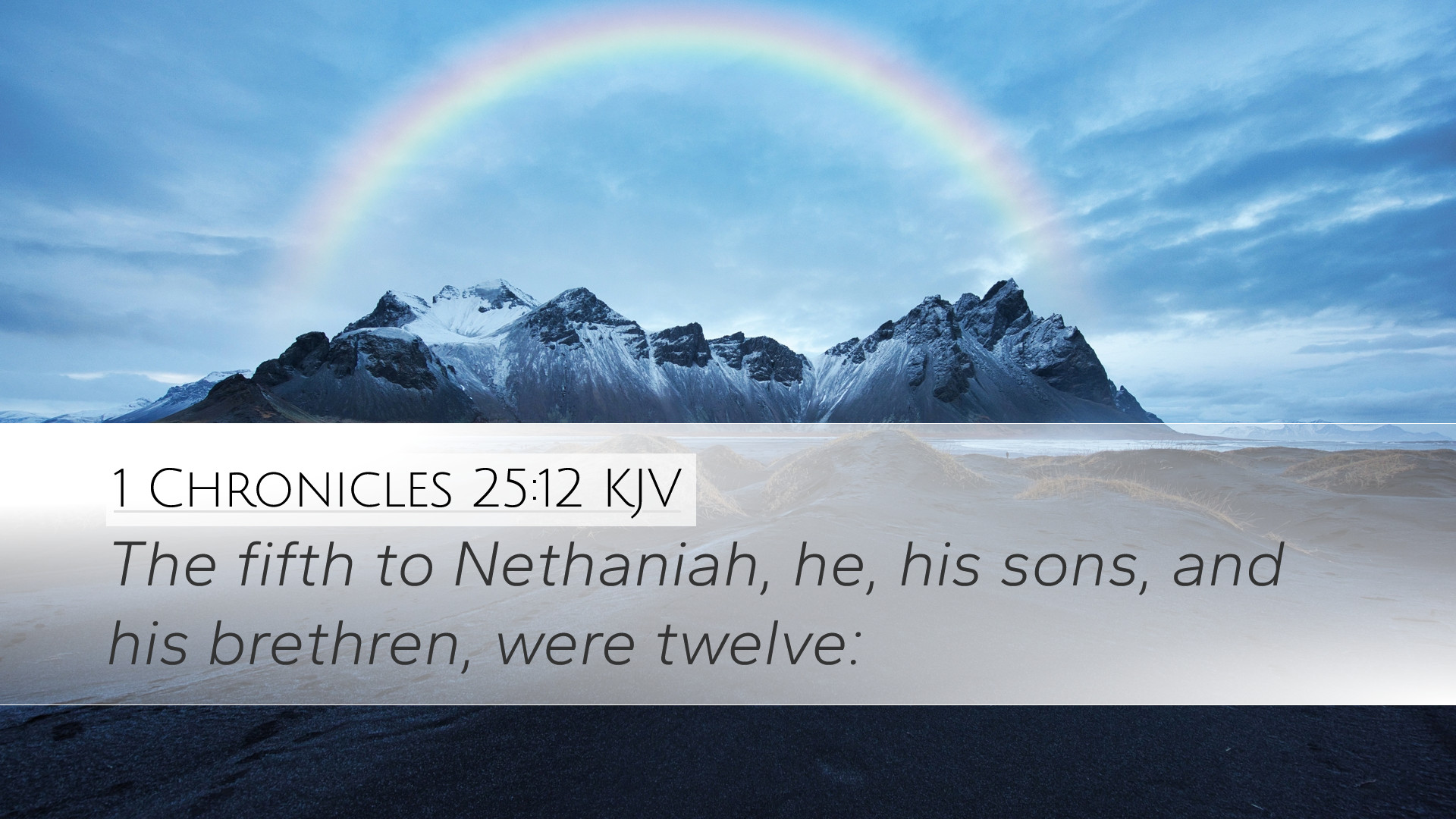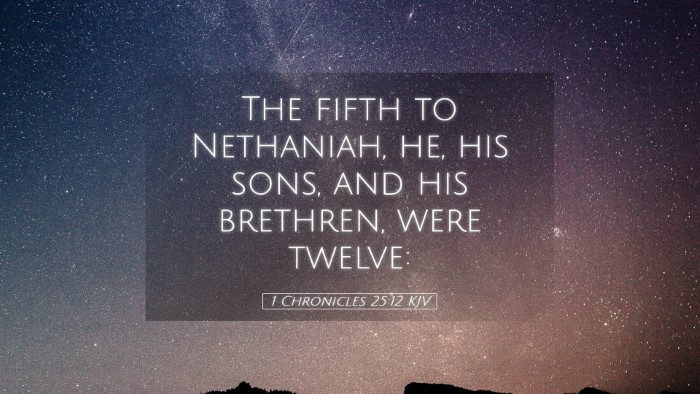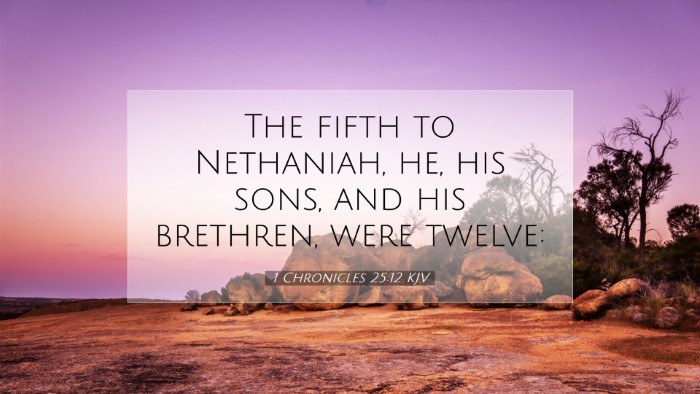Commentary on 1 Chronicles 25:12
Introduction
1 Chronicles 25:12 is a pivotal verse that highlights the organization of the Levites for the service of music in the temple. This verse offers profound insights into the structure of worship in ancient Israel, reflecting the divine order and the importance placed on worship within the Israelite community. The following commentary synthesizes insights from several public domain authors including Matthew Henry, Albert Barnes, and Adam Clarke.
Text of 1 Chronicles 25:12
"The twelfth to Hashabiah, his sons and his brethren, were twelve."
Historical Context
The context of 1 Chronicles 25 involves the establishment of musical ministers as part of the temple's service. The Levites, who were set apart for religious duties, played a vital role in facilitating worship. This verse, part of a larger passage detailing the appointed singers and musicians, underscores the organized approach taken by King David in the administration of worship.
Insights and Observations
-
Musical Ministry: Matthew Henry emphasizes that music was an integral component of worship, assigned specifically to the Levites. The musicians, categorized by their families, underscore the community’s commitment to honoring God through structured praise. This passage not only indicates the appointment of Hashabiah but also reflects a broader tradition where worship was communal and participatory.
-
Divine Order: Adam Clarke notes the clear delineation of roles amongst the Levites. Such organization points to God's desire for order in worship. While each musician was designated a specific role and numbered, Clarke illuminates the implication that God values the talents and contributions of individuals in service to Him.
-
Significance of Number: Albert Barnes provides an interesting perspective on the significance of the number "twelve" in this context. In biblical numerology, the number twelve often symbolizes completeness and divine authority. By appointing twelve songs or sections of musicians, there is a suggestion of a complete preparation for worship, as every tribe and generation is represented in enhancing the worship experience.
The Role of Hashabiah
Hashabiah, mentioned here, is part of a lineage that serves in a sacred role. His designation carries a weight that extends beyond mere participation; it signifies responsibility, leadership, and a calling to excellence in worship. Matthew Henry points out that such selection reinforces the notion that every act of worship requires dedication and is to be performed with integrity and fervor.
The Implications for Worship Today
The structuring of the Levites in 1 Chronicles 25:12 can be seen as a guideline for contemporary worship practices. Here are a few key reflections:
-
Teamwork in Worship: The collaboration among designated musicians shows how effective teamwork can elevate worship experiences. Modern churches can take insight from this verse on the importance of forming teams for collective worship, ensuring each participant understands their role.
-
Respect for Order: Drawing from Clarke’s observation on divine order, it suggests a call for churches today to approach worship with intentionality and respect for structure, even while being open to the spontaneity of the Holy Spirit.
-
Valuing Talent: The acknowledgment of individual talents in the community is crucial. This verse encourages churches to recognize and cultivate the unique gifts of their congregants for the glory of God, ensuring that each person feels valued in the body of Christ.
Conclusion
1 Chronicles 25:12 serves as a timeless reminder of the careful orchestration of worship in biblical times, which can inspire modern practices. The insights gathered from the commentaries of Matthew Henry, Albert Barnes, and Adam Clarke provide a multifaceted view of this verse, enriched by historical context, thematic significance, and practical applications. For pastors, students, and theologians, this scripture is an invitation to reflect on how worship is organized and conducted, in a way that continues to honor God’s calling and purpose in communal settings.


